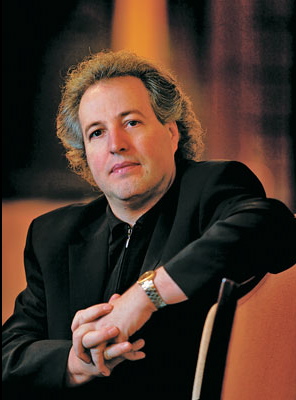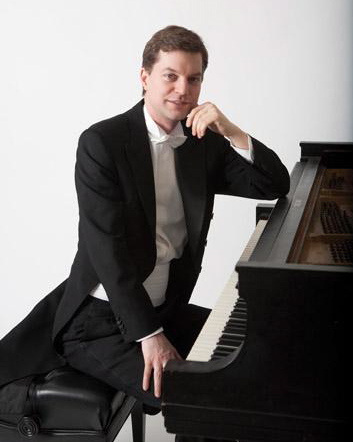Honeck, CSO heat up a chilly night with combustible Dvořák

This week’s Chicago Symphony Orchestra program is centered on meat-and-potatoes Czech-German repertory with two familiar standards by Dvořák and Beethoven.
Yet there was nothing the slightest bit routine about the combustible performances delivered by the orchestra under the baton of Manfred Honeck Wednesday night at Symphony Center.
The Austrian conductor, music director of the Pittsburgh Symphony since 2008, has been a CSO podium guest previously, as recently as four years ago.
Wednesday’s slightly abbreviated Afterwork Masterworks concert brought one of the most thrilling CSO nights so far this season with a galvanic performance of Dvořák’s Symphony No. 8.
Dvořák’s Eighth has received its share of memorable local outings from Carlo Maria Giulini’s warm-hearted 1978 performance (set down for posterity on Deutsche Grammophon) to the most recent rendering by Sir Mark Elder in 2009.
Fine as that impassioned performance was, Honeck managed to find an even more notable balance between Dvořák’s contrasting elements, with the confident exuberance and rhythmic swagger especially well projected. He set a brisk pace for the opening Allegro (aptly con brio as marked) yet the CSO’s playing was compelling more for the rhythmic clarity and Honeck’s balancing as for speed. Tuttis had fire and a lean brilliance yet the music never sounded overdriven, with Honeck finding ample room to allow the Czech composer’s rustic charm to emerge with vernal freshness.
Rarely will one encounter a performance of a Dvořák symphony with the kind of rarefied dynamic nuance Honeck brought to the middle movements: in the Adagio, the carefully blended winds conveyed the dark unease as well as the lyrical warmth, and the Allegretto went with the requisite al fresco lilt.
With a clarion launch by two trumpets, the closing movement was exhilarating, Mathieu Dufour sailing through the famous flute solo with full tone and technical gleam even at Honeck’s fast clip. Even here, Honeck managed to slow down gracefully to admire the passing view. The penultimate lyrical passage was rendered withbeguiling tenderness — and a lovely clarinet solo by Stephen Williamson — before the exuberant final burst from the orchestra. A thunderous ovation for the Austrian conductor, which he quickly shared with the CSO woodwinds and the rest of the orchestra.

The preceding performance of Beethoven’s Piano Concerto No. 1 was no less distinctive.
Soloist Till Fellner explored a fine middle ground between Mozartian articulative clarity and Romantic weight in this early Beethoven work (the composer’s second piano concerto to be written, but published first).
The Austrian pianist brought a rapt inner expression to the meditative Largo, with glove-like support by Honeck, as with the delicate interplay of the keyboard soloist and John Bruce Yeh’s solo clarinet. The rollicking Rondo finale — arguably Beethoven’s most sheerly joyous concerto movement — was infectious at a fast tempo, with Fellner’s bright-toned solo work showing faultless security.
Honeck’s taut, acutely focused accompaniment was in symbiotic support with his solo compatriot. The conductor’s spacious drawing out of that moment of repose before the closing tutti made Beethoven’s musical punchline even more effective.
Honeck is continuing to use the same orchestra layout favored by Sir Mark Elder the past two weeks with violins split and cellos inside left and center with basses behind. This setup seems to provide a somewhat richer, more burnished sonority than the standard CSO arrangement.
The program will be repeated with the addition of the Overture to Johann Strauss Jr’s Die Fledermaus 8 p.m. Thursday, Friday and Saturday. cso.org; 312-294-3000.
Posted in Performances

